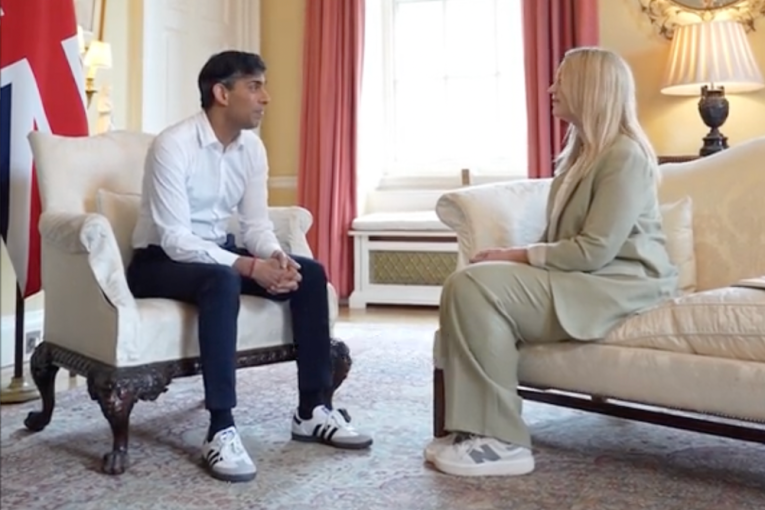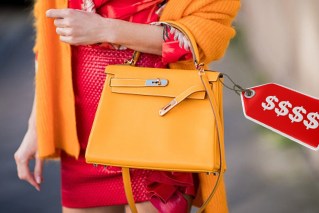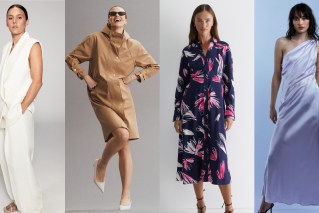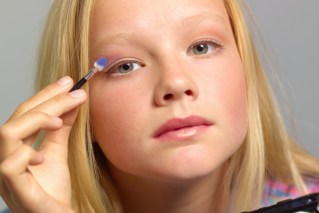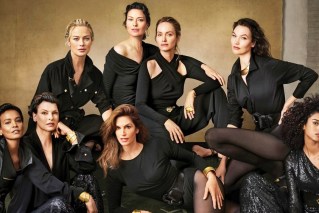Court short: What you wear can be a fashion crime – and slut-shaming has nothing to do with it


Amal Clooney, the queen of court dressing, shows how it's done outside an Athens court in 2014. (The sunglasses were not worn inside.) Photo: Getty
It was driven home to me this week just how horribly out of touch I am with fashion and feminism when I saw an article about a Sydney magistrate who chastised a woman for wearing tiny cut-off jean shorts that showed her butt cheeks when she appeared in court to answer a DUI charge.
“Wow!, That was a bold and foolish move to wear those,” I thought when I saw the headline.
But oh no, according to the piece on news.com.au, the fact that the female magistrate suggested the woman was inappropriately dressed and should perhaps tie something around her waist was “slut shaming, plain and simple”.
No, no it wasn’t.
Slut shaming is the practice of stigmatising a woman for engaging in a behaviour, or dressing in such a way, as to be judged promiscuous or sexually provocative. It’s a murky and shameful bias that has often been used to blame women for inviting sexual assault.
In this case the woman’s morality was not in question – more the fact that she thought it appropriate to dress like she was going to a music festival, not court.
But the piece went on to suggest that we ditch this “strange and stubborn notion that what a woman wears bears some correlation to respect and appropriateness”.

Wedding dress, suit: Influencer Nadia Bartel and husband Jimmy nail big occasion dressing in 2014. Photo: Instagram
For starters, dressing appropriately is not a societal convention that is confined to women.
Whether you like it or not, what you wear sends a message, which is why we have wedding gowns and business suits and gym gear and military uniforms.
Clothing is one of the most powerful social signifiers we have. Man or woman, what you wear speaks volumes before you can say a word.
It is never to be used as an excuse for sexual assault, of course. But if I were going to court for a DUI – stay with me, I’m just spit-balling here – I would definitely be sending out a different message with what I chose to wear. Something, for example, that suggested I actually gave two hoots that I had been caught allegedly drunk driving.
Lawyers routinely instruct their clients to make sure they dress conservatively and appropriately, not because of “a patriarchal power structure” but because it indicates the defendant understands the seriousness of the situation he or she is in.
A list of “not recommended to wear” on one legal website included:
- Crop tops
- T-shirts with beer, drug or sexual references
- Anything you’d wear to do yard work
- Gym gear and baseball caps
- Jeans, unless they are the only long pants you own
- Hats
- Shorts or cut-offs
- Thongs or flip-flops
- Anything you’d wear at the beach
- Sunglasses, unless medically prescribed
None of that seems unreasonable to me, and it is certainly directed at men as well. There are few occasions for which people feel the need to dress respectfully, but events held in places of worship such as weddings, funerals etc. are certainly on the list.
And, well, as I thought anyway, in court too.
Sure, you can dress as if you’re on the way to the beach if you like. But you risk having the book thrown at you by someone in a robe.
